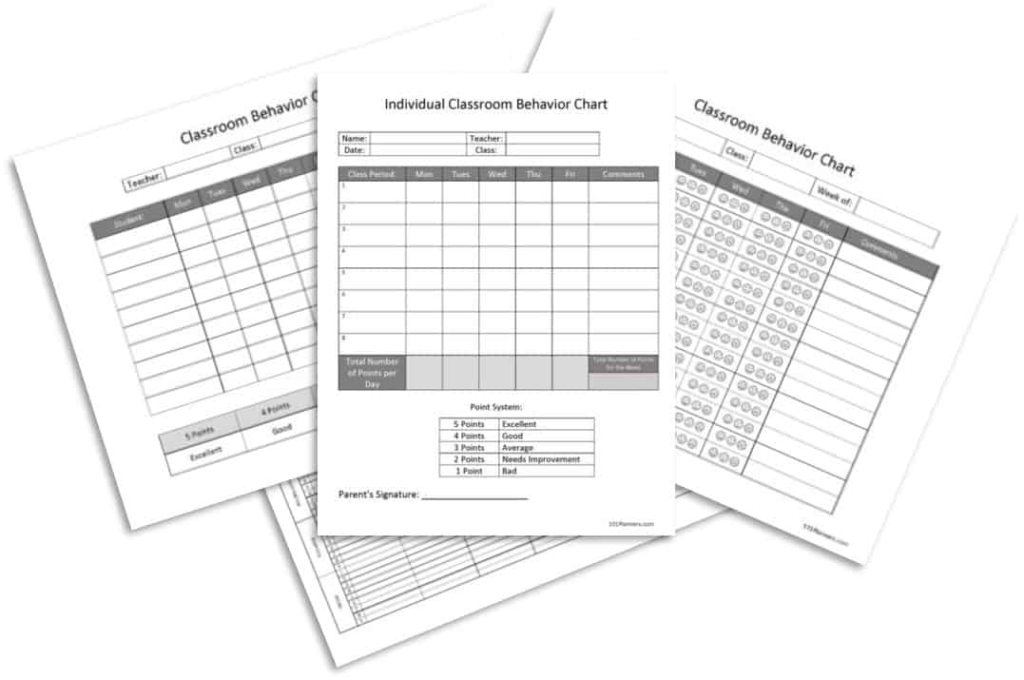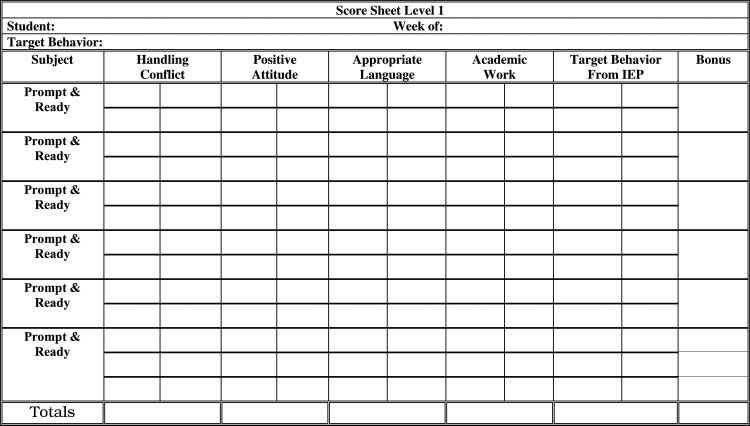Behavior management strategies play a key role in shaping how kids and adults respond to different situations in life. Among these strategies, point sheets have gained popularity as a tool for encouraging positive behavior. But are point sheets for behavior effective? In this guide, we’ll explore how point sheets work, why they’re loved by some kids, why they may not work for everyone, and how they compare to other strategies. Let’s dive into the details!
What Are Point Sheets for Behavior?
Point sheets for behavior are tools often used by teachers, parents, or caregivers to monitor and encourage specific behaviors in kids and sometimes even adults. A point sheet is essentially a daily or weekly chart where individuals can earn points for completing tasks, following rules, or displaying positive behaviors. These points can later be exchanged for rewards, such as extra playtime, small prizes, or privileges.
Point sheets work by creating a structured way to track behavior and reinforce good actions. For example, if a child completes their homework, shares with a sibling, or listens to instructions, they can earn points. These sheets are commonly used in schools, therapy programs, and even homes to help children develop better habits.
Are Point Sheets for Behavior Effective?
Point sheets can be highly effective when used correctly. They provide a clear system of accountability and help individuals understand the connection between their actions and consequences. For example, if a child knows they will earn points for raising their hand in class instead of shouting, they are more likely to engage in that behavior.
Research shows that positive reinforcement—rewarding good behavior instead of punishing bad behavior—is a powerful motivator. Point sheets leverage this principle by focusing on what children are doing right rather than what they are doing wrong. When used consistently, point sheets can encourage positive habits, reduce negative behaviors, and even improve relationships between kids and adults.
However, it’s important to note that the effectiveness of point sheets depends on factors like consistency, the types of rewards offered, and how well the system is explained and enforced.
Why Some Kids Love Point Sheets
Many kids enjoy point sheets because they provide a sense of control and accomplishment. Kids can see their progress on paper and feel proud when they earn points. This system can be especially motivating for children who thrive on structure or need extra encouragement to stay focused.

Another reason kids love point sheets is the rewards. Whether it’s earning extra screen time, choosing what to eat for dinner, or receiving a small toy, rewards make the system fun and engaging. For some children, even the act of earning points is exciting, as it feels like a game.
Why Point Sheets Might Not Work for Everyone
While point sheets can be effective for many, they don’t work for everyone. Some kids may lose interest if the rewards don’t feel meaningful or if the system isn’t enforced consistently. Others may become overly focused on earning points and feel frustrated if they don’t meet their goals.
For example, a child who struggles with emotional regulation may find it hard to earn points consistently, leading to feelings of failure. In such cases, point sheets might need to be adjusted or combined with other strategies to address underlying challenges.
How to Make Point Sheets Work Better
To make point sheets more effective, consider these tips:
- Set realistic goals: Make sure the expectations are achievable for the individual.
- Offer meaningful rewards: Rewards should be tailored to what motivates the person.
- Be consistent: Use the point sheet daily and provide feedback regularly.
- Keep it simple: A complicated system can be confusing, especially for younger children.
- Involve the child: Let them help design the point sheet or choose rewards, so they feel more invested.
Benefits of Using Point Sheets for Behavior
Point sheets come with several benefits, including:
- Accountability: They provide a clear way to track behavior and progress.
- Positive reinforcement: They focus on rewarding good behavior, which can build self-esteem.
- Clarity: Point sheets set clear expectations for what behaviors are encouraged.
- Improved relationships: The system can reduce conflicts by providing a positive way to address behavior issues.
- Customizability: Point sheets can be tailored to fit the needs of each individual.
What Are the Downsides of Using Point Sheets?
While point sheets have their benefits, they also have potential downsides. One issue is that some children may become overly dependent on external rewards and struggle to develop intrinsic motivation. For example, a child may only complete their homework to earn points rather than understanding the value of learning.
Another downside is the potential for inconsistency. If adults forget to track points or don’t enforce the system consistently, the effectiveness of the point sheet can decrease. Additionally, for kids who struggle with self-regulation or emotional issues, point sheets alone may not address the root cause of their behavior.
Comparing Point Sheets to Other Behavior Strategies
Point sheets are just one of many tools for managing behavior. Here’s how they compare to other common strategies:

Positive Reinforcement vs. Point Sheets
Point sheets are a form of positive reinforcement, but they involve tracking points over time. Other forms of positive reinforcement, like verbal praise or immediate rewards, may work better for some kids who need instant feedback. While both methods aim to encourage good behavior, point sheets provide a more structured approach.
Time-Outs vs. Point Sheets
Time-outs focus on removing a child from a situation when they exhibit bad behavior, whereas point sheets emphasize rewarding good behavior. While time-outs can be effective in certain situations, they don’t teach kids what to do instead. Point sheets, on the other hand, promote positive actions by providing clear goals and incentives.
Behavior Charts vs. Point Sheets
Behavior charts are similar to point sheets but often use stickers, stars, or checkmarks to track progress. Both tools can be effective, but point sheets may provide more flexibility in assigning different point values for different behaviors.
How to Use Point Sheets Effectively at Home
Using point sheets at home requires consistency and creativity. Start by identifying the behaviors you want to encourage, such as cleaning up toys, brushing teeth, or using kind words. Create a simple point sheet and explain the rules to your child. Be sure to choose rewards that are meaningful to them, whether it’s a trip to the park, extra screen time, or a small treat.
Review the point sheet regularly with your child, celebrating their successes and discussing areas for improvement. Over time, you can adjust the system as needed to keep it engaging and effective.
How Teachers Can Use Point Sheets in Schools
Point sheets can be a valuable tool for teachers looking to manage classroom behavior. Teachers can use them to track individual student progress or create a group system for the whole class. For example, a teacher might give points for behaviors like completing assignments, helping classmates, or raising hands before speaking.
To make the system work in a school setting, it’s essential to keep the point sheet simple and easy to manage. Teachers can also involve parents by sending home weekly updates on their child’s progress.
The Bottom Line
So, are point sheets for behavior effective? The answer depends on how they are used and who they are used for. When implemented consistently and paired with meaningful rewards, point sheets can be a powerful tool for encouraging positive behavior in kids and even adults. However, they are not a one-size-fits-all solution and may need to be adapted to fit individual needs.
Whether you’re a parent, teacher, or caregiver, point sheets can help create a structured and supportive environment for learning and growth. By focusing on positive reinforcement and clear goals, you can help individuals develop good habits and feel proud of their progress.


